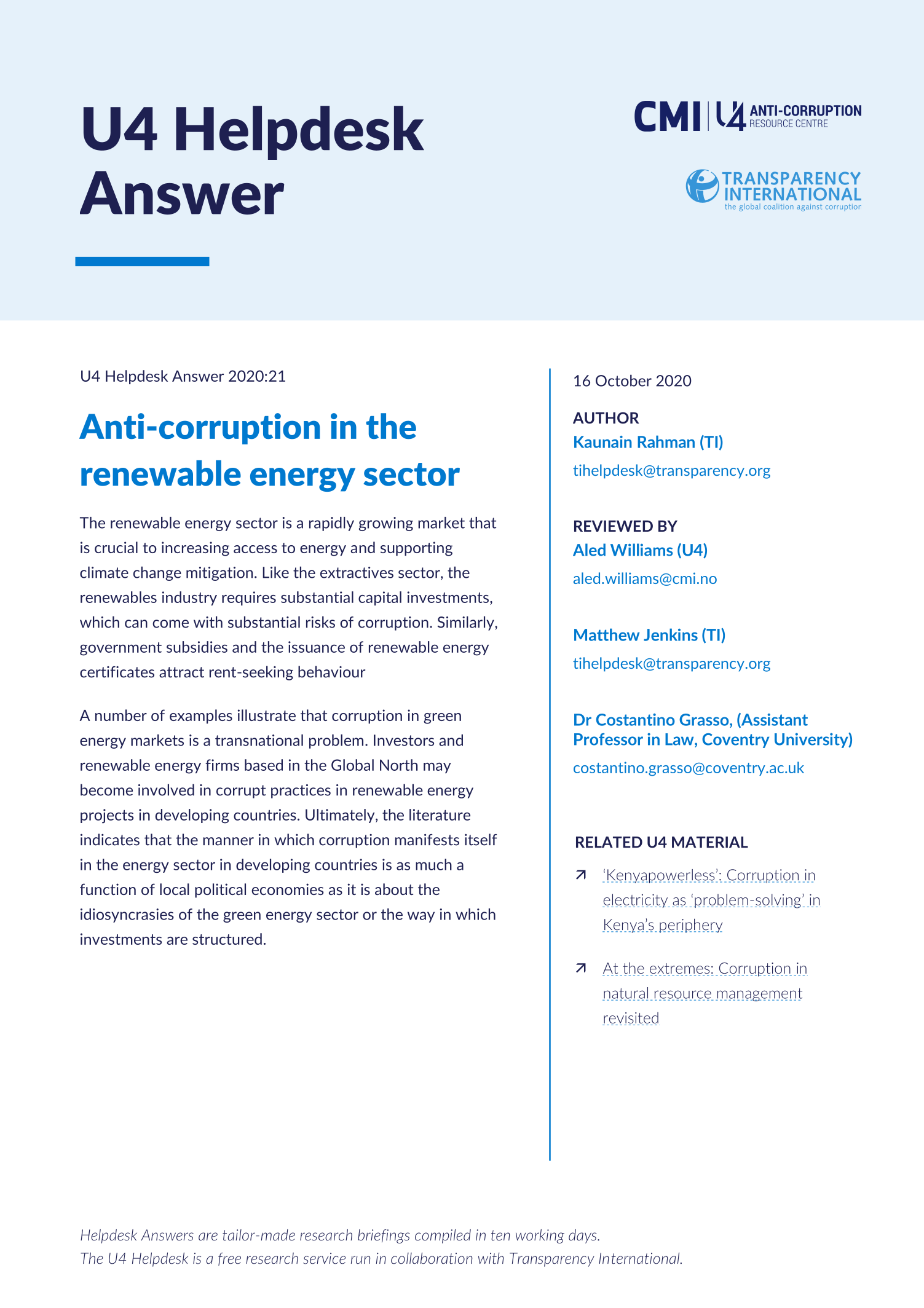Main points
- The development of renewable energy markets poses a set of unique corruption challenges, especially in the African context. Experiences from the extractives sector have led some in the industry to warn of a potential “green curse”.
- Stakeholders in renewable energy value chains include not only manufacturers, suppliers and users but also government agencies, financial institutions and private technology companies, as well as informal local networks.
- Potential forms of corruption include bribery, theft, collusion and bid-rigging.
- Anti-corruption strategies designed for the sector should be cognisant that local contextual realities are as important as the industry-specific idiosyncrasies of the green energy sector.


